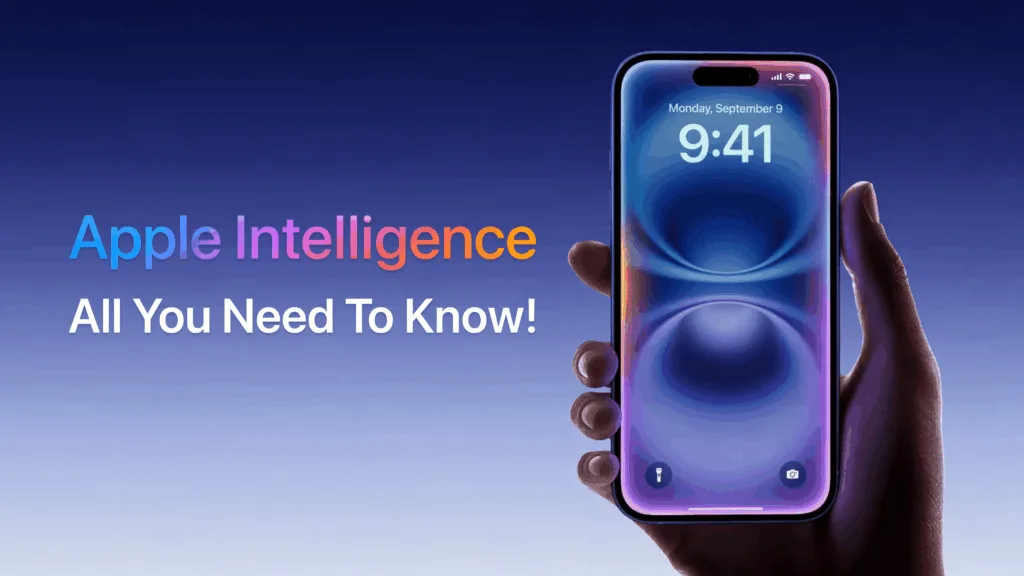Apple Intelligence has officially entered the spotlight with Apple’s groundbreaking AI announcements at WWDC 2025. This new leap in innovation marks a bold step in Apple’s approach to artificial intelligence — particularly within the iOS and macOS ecosystems. Unlike traditional AI deployments dependent on cloud infrastructure, Apple Intelligence is designed to run on-device, prioritizing privacy, speed, and personalization for users.
In this article, we explore how Apple is redefining AI in iOS and macOS through a seamless blend of performance, privacy, and productivity-enhancing capabilities. From personalized Siri interactions to intelligent text editing and photo organization, Apple’s new approach is poised to reshape how millions interact with their devices.
What is Apple Intelligence?
Apple Intelligence refers to Apple’s new suite of AI features built into iPhones, iPads, and Macs. Unlike generic AI models, Apple’s AI strategy focuses on integrating machine learning and generative AI directly into the operating systems—iOS and macOS—without heavily relying on the cloud.
At the core of Apple Intelligence is the concept of on-device AI, which ensures that user data never leaves their personal devices. This shift is both a privacy-first move and a technological advancement in processing power, made possible through Apple Silicon chips like the A18 Bionic and M3 processors.
AI in iOS: Smarter, Safer, Faster
The latest version of iOS comes packed with AI-powered features designed to enhance productivity and user experience. Key highlights include:
-
Smart Summarization: Users can now summarize long emails, documents, or Safari pages using Apple’s natural language processing engine.
-
AI Text Editor: Notes and Messages now include intelligent text suggestions, grammar correction, and rewriting capabilities that reflect the user’s tone and context.
-
Advanced Siri: Apple’s virtual assistant has been rebuilt using Apple Intelligence, enabling more natural conversations, better context awareness, and deeper integration with apps like Calendar, Mail, and Reminders.
These updates allow Apple to compete directly with AI features found in Android and Google’s Pixel devices but with a distinct emphasis on data privacy.
macOS AI Features: Power for Professionals
Apple Intelligence is also a core part of the newest macOS update, making MacBooks and iMacs more powerful than ever. Professionals, developers, and content creators will benefit from:
-
Code Assistant for Xcode: Similar to GitHub Copilot, this AI tool helps developers write, auto-complete, and debug Swift code directly within Xcode.
-
Generative Image Tools: Designers can now generate illustrations or modify existing ones using generative AI tools built into macOS Photos and Preview apps.
-
Contextual Automation: With enhanced Siri and Shortcuts, users can create workflows triggered by specific app usage or time-based criteria.
The macOS AI integration represents Apple’s goal of making every Mac a personalized and secure AI workstation.
Privacy-Centric AI: Apple’s Unique Advantage
While many tech giants rely on cloud computing for AI tasks, Apple has doubled down on its privacy-first approach. All AI processing takes place on-device using Apple’s Neural Engine, part of its custom chipsets.
This method ensures:
-
Minimal data sharing with third parties
-
Fast response times due to local processing
-
Personalization without sacrificing user trust
This puts Apple at a unique advantage, especially in regions like the EU where data privacy regulations are strict.
Apple’s Generative AI vs. Competitors
With Apple Intelligence, Apple joins the AI race alongside Google Gemini, Microsoft Copilot, and OpenAI. However, Apple’s generative AI tools are subtly different in purpose and design:
-
Instead of open-ended chatbots, Apple focuses on task-specific enhancements within apps.
-
Rather than using user data to train models, Apple ensures all personalization is stored locally.
-
Apple’s AI interfaces feel more like productivity tools than AI conversations.
This approach could appeal to a broader audience — especially those cautious about data misuse.
Apple WWDC 2025 Updates That Made Headlines
Key Apple Intelligence features announced at WWDC 2025 include:
-
Siri 2.0 – More human-like voice, contextual follow-up questions, app command recognition
-
AI Photo Cleanup – Remove background objects or people with a single tap
-
Smart Notifications – AI-prioritized alerts based on urgency and behavior
-
Cross-App Intelligence – Combine actions across apps (e.g., extract info from Mail and schedule in Calendar)
These features are expected to roll out in public beta this summer and in full release with iOS 19 and macOS Sequoia.
The Future of Apple Intelligence
Apple Intelligence isn’t just a buzzword — it’s a foundation for future innovations. With on-device AI becoming a standard, we can expect smarter, more secure Apple products over the next decade.
Looking ahead, Apple may expand its AI to wearables like the Apple Watch and Vision Pro, creating an AI ecosystem that adapts to your health, environment, and daily routines — all without compromising your privacy.
Conclusion
Apple Intelligence marks a pivotal moment in how artificial intelligence will be integrated into personal computing. With robust AI in iOS and macOS, users get more intelligent interactions, smarter productivity tools, and a high degree of trust in their data privacy. As Apple continues to evolve its ecosystem, it’s clear that the future of AI is not just cloud-powered — it’s Apple-powered.
